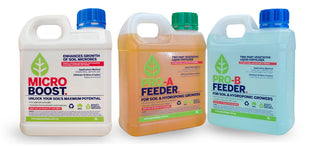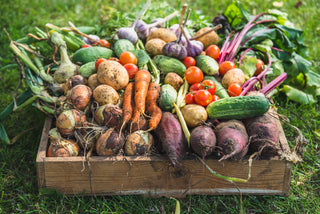Important Notice
These seeds are Heirloom varieties, meaning they are open-pollinated and have been passed down through generations, often for over 50 years. For optimal results and safety:
- Do not consume the seeds or give them to animals.
- Keep the seeds away from children and pets.
- Always wear gloves when handling the seeds, and wash your hands thoroughly with soap and water afterward.
- Note: Heirloom seeds are not genetically modified (GMO). They are preserved through traditional cultivation practices, maintaining the genetic integrity and unique characteristics of the original variety.
Heirloom seeds are ideal for planting and propagation in your garden, offering the opportunity to grow plants with rich histories, unique flavors, and diverse appearances. The crops produced from these seeds are safe to eat and retain the traditional qualities that have been valued for generations.
In Australia, the use of Heirloom seeds may be subject to AQIS (Australian Quarantine and Inspection Service) regulations under the Department of Agriculture, Water and the Environment. Be sure to follow any specific guidelines related to seed treatment or handling. Always read and adhere to the instructions on the seed packet for best results.
Why Heirloom Seeds?
Heirloom seeds are prized for their historical significance, genetic diversity, and the ability to save seeds for future planting. Here’s a summary of their advantages and considerations:
| Advantages | Disadvantages |
|---|---|
| Rich History: Heirloom seeds connect gardeners to the past, offering varieties that have been cultivated and cherished for generations. | Lower Yields: Heirloom varieties may produce lower yields compared to modern hybrid seeds, which are often bred for enhanced productivity. |
| Seed Saving: Like other open-pollinated seeds, Heirloom seeds can be saved and replanted each season, preserving their unique characteristics. | Susceptibility to Pests and Diseases: Heirloom varieties may not have the same level of resistance as modern hybrids, requiring more care and attention. |
| Genetic Diversity: Heirloom seeds contribute to the preservation of genetic diversity, which is crucial for sustainable agriculture and food security. | Variability: Natural pollination can lead to some variation in plants, which may be less desirable for those seeking uniformity in their crops. |
| Unique Flavors and Traits: Heirloom varieties often have distinct flavors, colors, and forms that are not found in modern commercial varieties. | Limited Availability: Heirloom seeds may be harder to find, and not all plant varieties are available as Heirlooms. |
History of Heirloom Seeds
Heirloom seeds have a long and storied history, reflecting the agricultural traditions of different cultures and regions:
- Ancient Times: The practice of saving seeds dates back to the earliest days of agriculture, as farmers and gardeners selected seeds from their best plants to grow in future seasons.
- Pre-Industrial Agriculture: Before the advent of modern agricultural techniques, all seeds were essentially heirloom varieties, passed down through generations and shared among communities.
- 20th Century: As industrial agriculture and hybrid seeds became more widespread, many heirloom varieties were preserved by traditional farmers and seed savers who valued their unique qualities and historical significance.
- 21st Century: The revival of interest in heirloom seeds is driven by a growing appreciation for biodiversity, sustainability, and the desire to reconnect with the roots of our food systems. Heirloom seeds are now sought after by gardeners who want to preserve these valuable varieties for future generations.
Heirloom seeds are more than just seeds—they are a living link to the past and a vital resource for the future. By choosing Heirloom seeds, gardeners help preserve the rich diversity of our agricultural heritage and contribute to the sustainability of our food supply.





